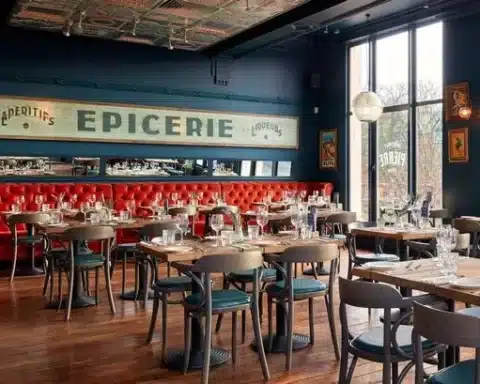Calls have been made for Southport bus services to be put back into public control to improve local transport for residents.
It follows a meeting between representatives of the Ormskirk, Preston and Southport Traveller’s Association (OPSTA) and Liz Savage, Southport’s Labour Parliamentary Candidate, to discuss what are viewed as growing problems with bus services in the town and surrounding areas.
Issues such as rising fares and shrinking routes were highlighted as a direct consequence of the deregulation and privatisation of bus services ordered by Margaret Thatcher’s government in 1986. Arriva is now the main bus operator in Southport but has come under criticism locally for its service provision.
Recently, it also announced changes to the No 44 route in Kew and caused uproar with its decision to close the 46a service in Norwood. The company was strongly criticised by Southport’s five Labour councillors for its lack of transparency and poor treatment of local passengers.
After a number of meeting with Arriva’s local management team, the councillors declared that the company had “dressed up a diktat as a dialogue”, citing its poor public consultation on the changes. They also noted that it had repeatedly failed to provide the figures to back up its claim that the 46a route had suffered falling passenger numbers for five years – despite promising on several occasions to do so.
Mike Perkins of OPSTA and a former manager of local bus services, believes that such behaviour stems from a commercial mindset that is completely at odds with what makes for a really good local transport service:
“Working for publicly-owned bus operators was a positive job, with more interest in providing a decent service to passengers and introducing new services where required – rather than just running a very low level network based on minimum costs, and theoretical maximum profits, though each time services are cut, passengers are lost and revenue reduces.”
Labour’s Liz Savage says that the continued decline of services in the town and across the country shows that the Tory approach has failed, and this is brought into sharper focus by the thriving bus services in London – which remain under public control:
“It’s clear that deregulation and privatisation have had a detrimental effect on service provision, routes have shrunk, fares have rocketed and all this as we desperately need people to get out of their cars and onto public transport. In London, it works, and that’s in no small part because the system is publicly regulated, not privatised.”
“Labour believes in buses and in the public ownership of them and our trains. It’s the best way to have a proper integrated transport service that has the needs of communities like Southport as its focus, not shareholders, and to help us meet our vital carbon targets.”
Mike Perkins agrees, and says OPSTA members are now looking to establish a new bus campaign group which would work closely with it to see transport improvements in the Southport and West Lancashire area:
“It is time that we put more money into public transport, introduce new services, and try to encourage car users to change. I’m hoping that the Liverpool City Region will regain control of the local bus service provision, with a more positive approach to services, as is likely in Greater Manchester, and I support this.”
Liz Savage says such aims get her full backing:
“Over 3,000 bus routes have been withdrawn since 2010. We need to reverse that decline and Labour has already promised £1.3 billion to do just that.”
“We want to provide a more holistic solution to our transport problems. It’s essential that control is back in the hands of those who see these routes as a service, not just a cash point.”













OTS News on Social Media